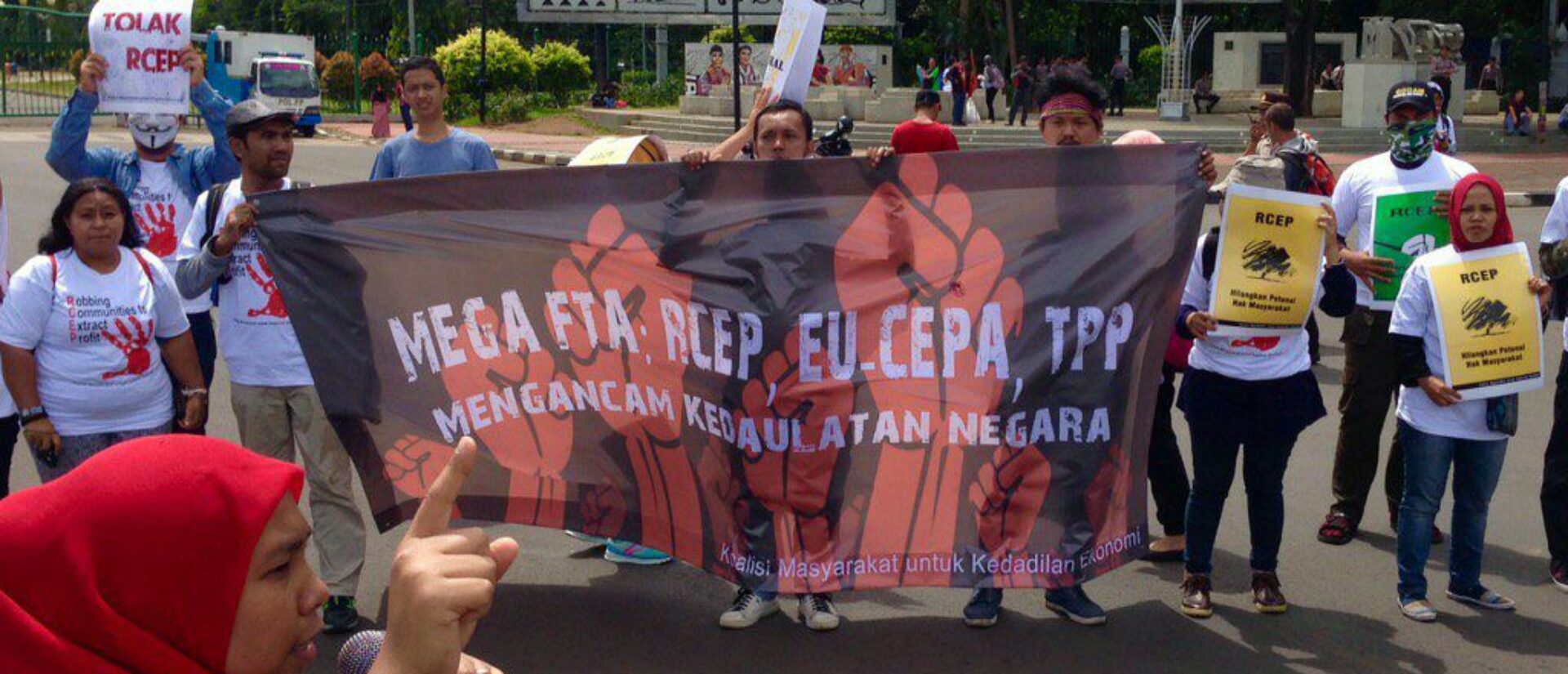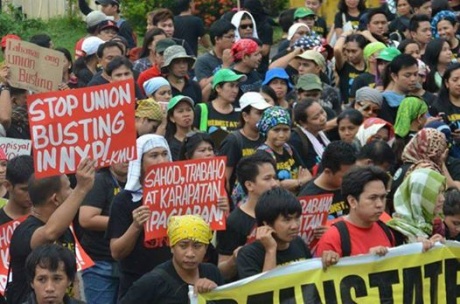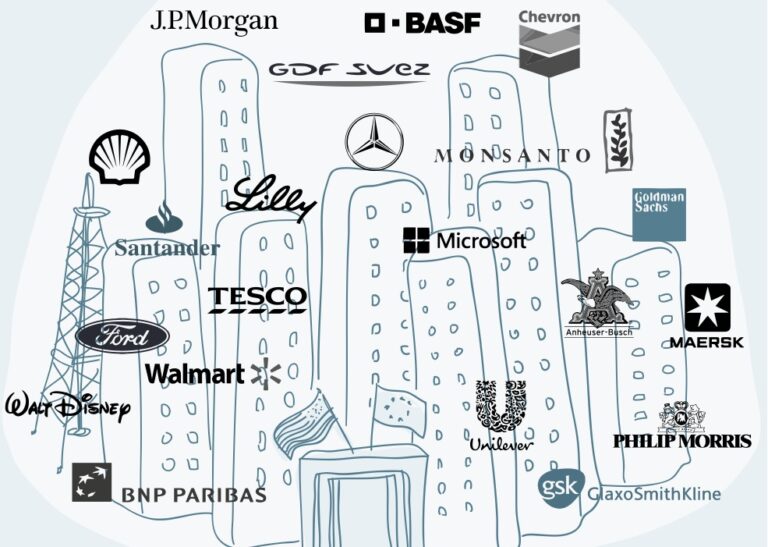
Put a moratorium on Indonesia-EU CEPA negotiations
From 24-28 January 2017, the second round of negotiations towards a Comprehensive Economic Partnership Agreement (CEPA) will take place between the EU and Indonesia.
CEPA: Human rights must take precedence over free trade
These negotiations are very much driven by the interests of the world’s large transnational corporations. This is reflected in the agenda for the negotiations that continues to closely mirror those for TTIP and TPP. The negotiations ignore the substantial and growing public consensus that more unbridled market access and protection for big business is not a sustainable way forward.
World wide support: 46 CSOs already signed the statement
SOMO, together with partner organisations Indonesia for GlobalJustice(opens in new window) , TNI and Both ENDS and the undersigned civil society organisations from Indonesia, ASEAN and Europe call on the negotiators to halt the negotiations until an inclusive consultation to map the potential impacts of a CEPA agreement is undertaken with civil society in the broadest possible sense.
A comprehensive Sustainability Impact Assessment (SIA), as well as a dedicated Human Rights Impact Assessment (HRIA) to map the potential economic, environmental, social and human rights impacts of the proposed agreement must precede and inform further trade talks. Any SIA and HRIA processes must guard against corporate capture, i.e. privileged access of (big) business interests.
We ask Indonesia and the EU to protect basic rights of people in the negotiations in the EU by taking on board the recommendations set out in our statement. These also extend to other EU negotiations in ASEAN, including with the Philippines, Thailand and Myanmar.
Read the EU-Indonesia CSO CEPA statement for the 2nd round of negotiations below.
Do you need more information?
-

Myriam Vander Stichele
Senior Researcher
Partners
-
EU-Asian FTA
Download
Related content
-
 SOMO and IGJ cooperate to improve trade and investment agreementsPosted in category:NewsPublished on:
SOMO and IGJ cooperate to improve trade and investment agreementsPosted in category:NewsPublished on: -
 Chip producer NXP involved in multiple disputes with local trade unionsPosted in category:NewsPublished on:
Chip producer NXP involved in multiple disputes with local trade unionsPosted in category:NewsPublished on: -
Free Trade Agreement EU, Colombia and Peru Published on:
 Myriam Vander StichelePosted in category:Publication
Myriam Vander StichelePosted in category:Publication Myriam Vander Stichele
Myriam Vander Stichele
-
 Myriam Vander StichelePosted in category:Publication
Myriam Vander StichelePosted in category:Publication Myriam Vander Stichele
Myriam Vander Stichele -


